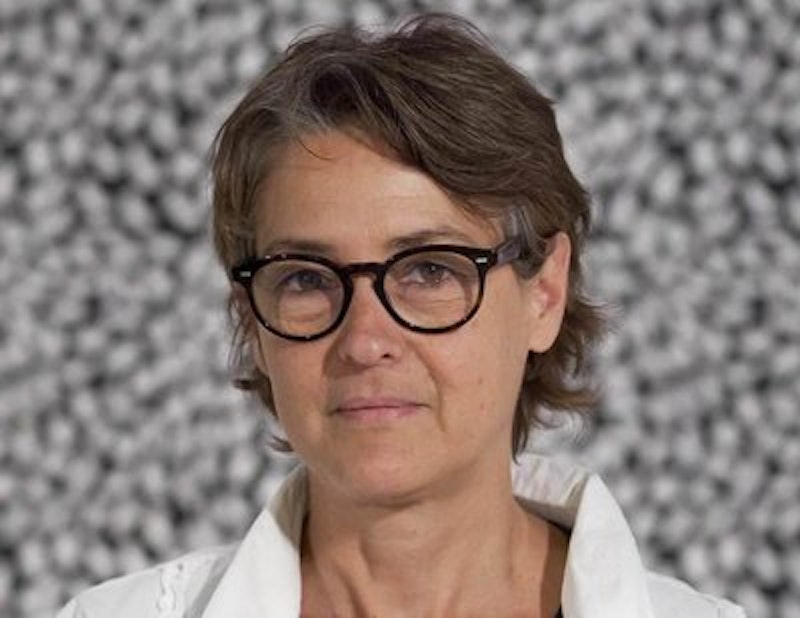Life often feels like something that bumped into you, and then bumped into you again, and so on. The same with love, often enough. The only book I know that captures this feeling is On Loving Women, a short volume of comic-book memoirs by Diane Obomsawin. She took her friends’ stories about first love and early queerness and turned them into cartoon boxes occupied by people drawn to look like dogs, people drawn to look like horses, and so on. The backgrounds devolve into rectangles, circles, and tubes, all of them too skinny or fat to properly represent the things they stand for, such as windows, trains, and beer mugs. These things are scattered against gray backgrounds that simultaneously build them up and make them look lonely. The result is that the panels—the panels themselves, uniform boxes set out with a ruler—end up seeming gawky. In addition, the horse-people, dog-people, and the rest have only a theoretical resemblance to horses, people, dogs, or anything except more tubes and rectangles.
All this makes the book sound incompetent, when actually it’s splendid. The fake primitive approach (I say fake because Obomsawin has a long career as an artist, cartoonist, and animator) combines with the subject matter to make us feel like we’ve arrived at the basement floor of the heart, a ground zero that’s somehow remote from us but private to us, a place that’s alien but homelike, cramped but expansive. The same effect proceeds from the stories themselves, which are about having feelings before we’ve learned to tell ourselves stories about feelings. Big developments take odd forms. A girl keeps giving her crush horse drawings, “and then one day she told my sister she’d had enough.” We see a horse-girl and a (I think) doe-girl, and they have big healthy loops showing the straps for their backpacks, and the horse-girl says, “Tell her to stop!” In the background is the little sister, her doe ears lying flat, her picture dangling from her hand, the horizon’s dumb flat line pinned close to her feet. Most of the accounts break off without a punchline. “And I had to sell my horse,” concludes one. Another says, “Her mother greeted us downstairs.”
Perhaps a man or a straight woman could do a book like this. As far as I know, they haven’t. As a straight man, I wonder about the difference Obomsawin’s demographic makes to me. First, I’m looking over a fence and I’m ready to see child-like beings on the other side. Take out men and straight women, and love must be an idyll; anyway, that’s what the outsider winds up feeling. Second, love minus men and straight women may also strike me as bounding free from reference points. My up and down will get misplaced; I won’t know what hit me. All the above adds up to something like the effect produced on me by Obomsawin’s book.
But everyone has their sources of resonance. If you had to be a straight man to feel this book, it wouldn’t have been written. Obomsawin has truthful friends and she’s done justice to their stories, which are stories that match up with themselves and nothing else. That thought brings me to one of the few accounts with a punchline. A girl recalls her long-standing crush on a teacher, a one-sided romance that took the form of pestering the woman for attention. One day in high school, after this business has been going on for years, we find the teacher bawling the girl out in the hallway. The girl, who looks like an owl with frazzled stalks for eyebrows, stands next to a thought bubble, and the bubble says, “You’ll never forget me.” Fair enough.
—Follow C.T. May on Twitter: @CTMay3

